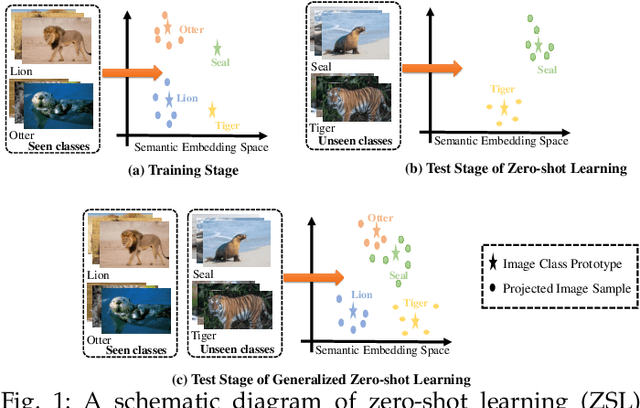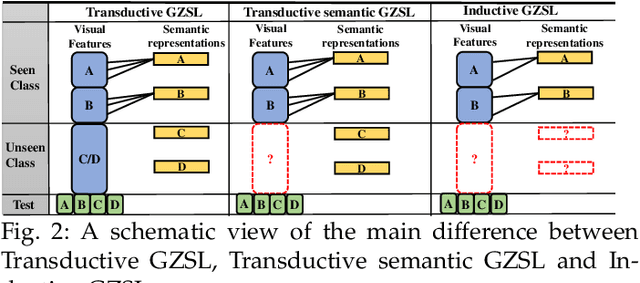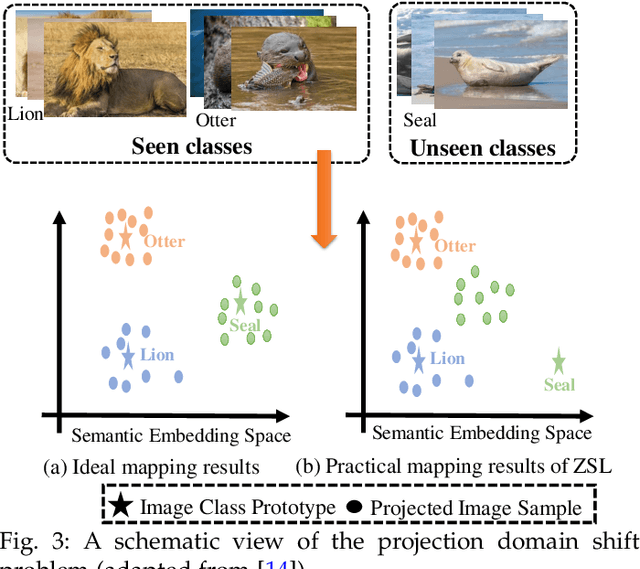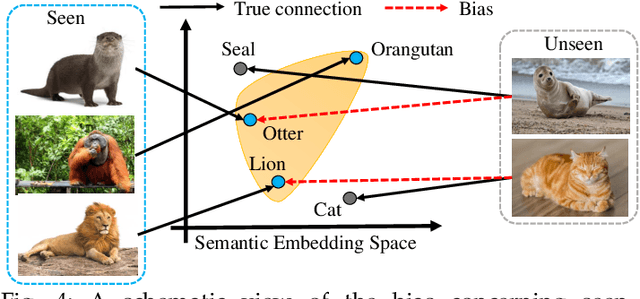A Review of Generalized Zero-Shot Learning Methods
Paper and Code
Nov 17, 2020



Generalized zero-shot learning (GZSL) aims to train a model for classifying data samples under the condition that some output classes are unknown during supervised learning. To address this challenging task, GZSL leverages semantic information of both seen (source) and unseen (target) classes to bridge the gap between both seen and unseen classes. Since its introduction, many GZSL models have been formulated. In this review paper, we present a comprehensive review of GZSL. Firstly, we provide an overview of GZSL including the problems and challenging issues. Then, we introduce a hierarchical categorization of the GZSL methods and discuss the representative methods of each category. In addition, we discuss several research directions for future studies.
 Add to Chrome
Add to Chrome Add to Firefox
Add to Firefox Add to Edge
Add to Edge